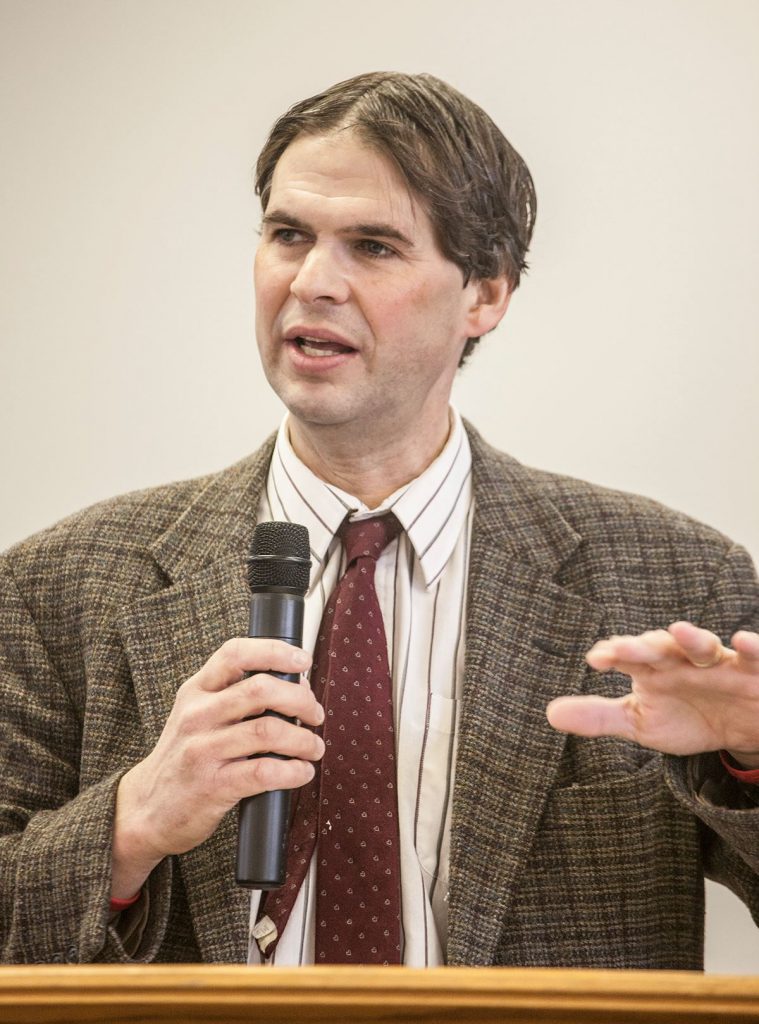The 10 Commandments tell us the big sins to avoid — gossip, envy, murder, etc. — but what do we do when we’re faced with the thousands of decisions we have to make every day?
Without getting a Ph.D. in moral theology and ethics, how can we be sure we’re making the morally right choice about whether to share a post on Facebook or attend a same-sex wedding?
In Dr. Mark Latkovic’s book “What’s a Person to Do? Everyday Decisions that Matter” (Our Sunday Visitor, $15), he provides us with “a user-friendly toolkit for people who are trying to do what is right, good, and holy.”
Kris McGregor: What are the basic underlying principles that help us in decision-making?
Dr. Mark Latkovic: People who are trying to form their consciences need the basic cardinal, moral virtues. These help us not only know what we are to do, but they empower us to actually carry out what is holy.
McGregor: How do we balance making these judgment calls without judging individuals?
Latkovic: I try to make people aware of the distinction between what is objectively right or wrong and the subjective culpability, the subjectivity of the person’s action.
We can make judgments about what the person is doing, but certain conditions — grave matter, definitive choice, awareness — have to be met before we impute mortal sin to that action. We don’t know what’s going on in a person’s mind or heart.
Ethics is all about our relationship to the goods of human persons. How we treat others comes down to whether or not we’re respecting the goods that are meant to flourish in them.
McGregor: For many of the questions in your book, you don’t always give an absolute yes or no.
Latkovic: I may be wrong on some questions! These are questions the Church hasn’t given definitive teaching on, or any specific teachings at all.
A question like: “How old do I have to be to have a Facebook account?” might not seem like it’s moral in character, but there are many guidelines the Church offers to help us deal with a question of that sort — how we use social media, how we engage people.
A lot of those questions are my own response, after having dealt with them with family, friends, parish groups, lectures, and teaching. We’ve all been confronted with these kinds of questions.
I’ve seen people really struggle to form their consciences, so I want to explore a number of different aspects to these questions. It’s not just a yes or no answer for a lot of them. You have to peel away the layers.
These are the questions that don’t rise to the level of abortion or euthanasia, but they are questions that people struggle with. They’re the questions that people sometimes leave the Church over, or that can alienate them in some way. So I see all these questions as part of an effort to evangelize through morality.
McGregor: What is our moral obligation as stewards of the financial blessings we’ve been given? Is there anything wrong with, say, buying a lottery ticket?
Latkovic: A lot of our attitudes toward money come from the culture, or political ideology, and they don’t come from the heart of the Gospel or the Church’s social teaching. We think, this is my money, I can do with it what I want.
We need to have that whole principle of stewardship. I’m to be a steward over my money. Catholics need to look seriously at these questions, so they can start to ask themselves, how can I serve God through the gift I’ve been given? How can I serve my neighbor?
McGregor: Why do we need to keep the Golden Rule at the forefront of our decision-making?
Latkovic: The Golden Rule is one of many moral principles that help us to specify that master principle of morality that we find in the Bible, of loving God and loving neighbor. In so many of these everyday moral decisions, we find that the Golden Rule is in play.
McGregor: How can this be a struggle in the area of family? You talk about the heartbreaking decision whether to take the keys to an elderly parent’s car, if their driving is deteriorating.
Latkovic: I have not had to deal with that in my own life, but I know people who have, and listening to their struggles, I got a feel for the anguish.
I really tried with this question to work in the virtues necessary for the person who is taking away the keys, but also the person who’s on the other end, and the virtues that they need to be able to deal with that situation. They need to be able to let go freely and willingly, and do it in a way that God wants them to do.
Identifying the virtues that are necessary for these decisions is important, because we have to start working on them today. Not tomorrow, not next week, but today. Because we never know when we’re going to be confronted with that situation.
Kris McGregor is the founder of Discerninghearts.com, an online resource for the best in contemporary Catholic spirituality.
SPECIAL OFFER! 44 issues of Angelus for just $9.95! Get the finest in Catholic journalism with first-rate analysis of the events and trends shaping the Church and the world, plus practical advice from the world’s best spiritual writers on prayer and Catholic living, along with great features about Catholic life in Los Angeles. Subscribe now!

